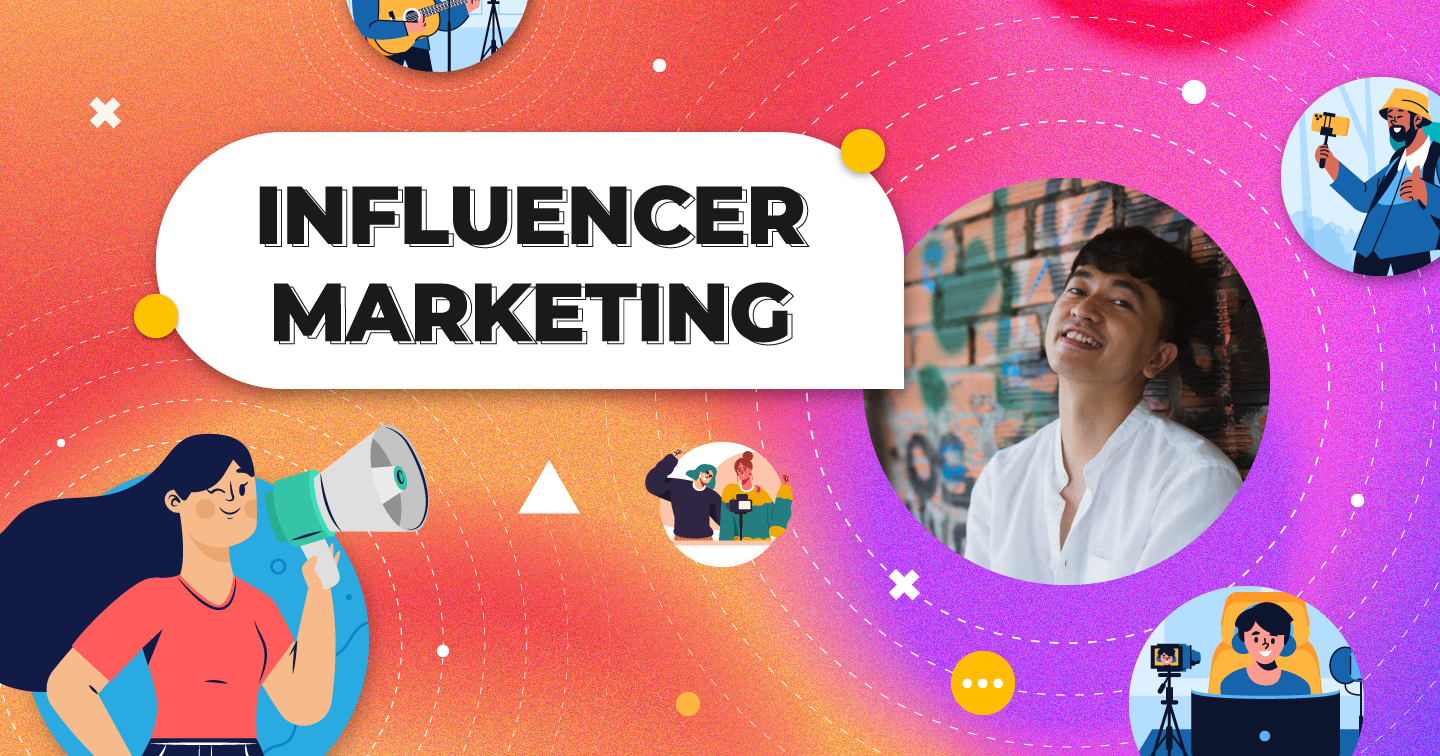In the fast-paced world of digital marketing, staying ahead of the curve is crucial. One of the strategies that have taken the marketing landscape by storm is influencer marketing. This innovative approach leverages the power of social media influencers to promote products and services authentically. As we delve into 2023, let’s explore influencer marketing trends that are shaping the future of digital advertising.
Influencer Marketing Trends: Navigating the Dynamic Landscape of Digital Promotion

1. Nano-Influencers: The Rise of Authenticity
Micro and nano-influencers, with smaller but highly engaged audiences, are gaining traction. These influencers bring an air of authenticity, connecting with followers on a personal level. Brands are recognizing the value of genuine connections, leading to increased partnerships with nano-influencers.
2. Video Content Dominance
In the era of short attention spans, video content continues to rule. Platforms like TikTok, Instagram Reels, and YouTube are hotspots for influencer marketing. Influencers are mastering the art of creating engaging video content, allowing brands to convey their message effectively in a matter of seconds.
3. Social Commerce Integration
Incorporating e-commerce features directly into social media platforms is a game-changer. Social commerce enables influencers to seamlessly promote products, allowing followers to make purchases without leaving the app. This trend not only boosts sales but also enhances the overall user experience.
4. Sustainability and Social Responsibility
Consumers are becoming more environmentally conscious and socially aware. Influencers who align with sustainable and socially responsible brands are gaining credibility. Brands are collaborating with influencers who advocate for eco-friendly products and social causes, creating a positive impact on society.
5. AI-Driven Influencer Marketing
Artificial intelligence is revolutionizing influencer marketing. AI algorithms analyze vast amounts of data to identify suitable influencers for specific campaigns. This data-driven approach ensures precise targeting, maximizing the return on investment for brands and creating meaningful partnerships with influencers.
6. Long-Term Partnerships
Gone are the days of short-lived partnerships. Brands are now leaning towards long-term collaborations with influencers. Building a consistent presence through influencers helps establish brand loyalty and trust among consumers. These enduring relationships create a more profound impact on the audience.
7. Interactive Content and Polls
Engagement is the key to a successful influencer marketing campaign. Interactive content, such as polls, quizzes, and live Q&A sessions, allows influencers to interact directly with their followers. This real-time engagement not only enhances the audience’s experience but also provides valuable insights for brands.
8. Niche-Specific Influencers
While macro-influencers have their place, niche-specific influencers are gaining prominence. These influencers cater to a specific audience interested in a particular niche, ensuring that the message resonates deeply. Brands are finding value in partnering with influencers who have a dedicated and passionate following within a niche market.
9. Augmented Reality (AR) Experiences
AR technology is transforming influencer marketing by offering immersive experiences. Influencers are incorporating AR filters and effects into their content, allowing followers to interact with products virtually. This hands-on experience enhances the appeal of products and encourages potential customers to make informed purchasing decisions.
10. Transparency and Disclosure
Regulations surrounding influencer marketing are becoming more stringent. Influencers are now required to be transparent about sponsored content and disclose paid partnerships. Brands and influencers embracing transparency build trust with their audience, ensuring the authenticity of their collaborations.
Conclusion
In conclusion, influencer marketing trends continue to evolve, adapting to the dynamic digital landscape. Brands that embrace these trends and collaborate with influencers strategically are poised for success in the competitive market. As we move forward, staying attuned to these trends will be essential for brands and influencers alike, ensuring impactful and authentic marketing campaigns.
Are you ready to elevate your brand’s presence and drive unparalleled growth? Request a demo from AIM Technologies today and discover how our cutting-edge influencer marketing solutions can transform your digital marketing strategy. Take the first step towards a brighter, more influential future for your brand.
Frequently Asked Questions
How do I find the right influencer for my brand?
- Finding the right influencer involves research. Look for influencers whose values align with your brand and whose audience matches your target demographic.
Is influencer marketing suitable for small businesses?
- Absolutely. Influencer marketing can be tailored to fit any budget. Nano-influencers, in particular, offer cost-effective options for small businesses.
What metrics should I track to measure the success of an influencer marketing campaign?
- Engagement rate, reach, click-through rate, and conversion rate are essential metrics to gauge the success of an influencer marketing campaign.
How can I ensure the authenticity of an influencer’s followers?
- Look for influencers who have genuine engagement with their audience. High engagement rates, meaningful comments, and real conversations indicate authenticity.
Are there specific industries where influencer marketing works best?
- Influencer marketing is versatile and can be applied to various industries. However, it works exceptionally well for lifestyle, fashion, beauty, and health-related products and services.


